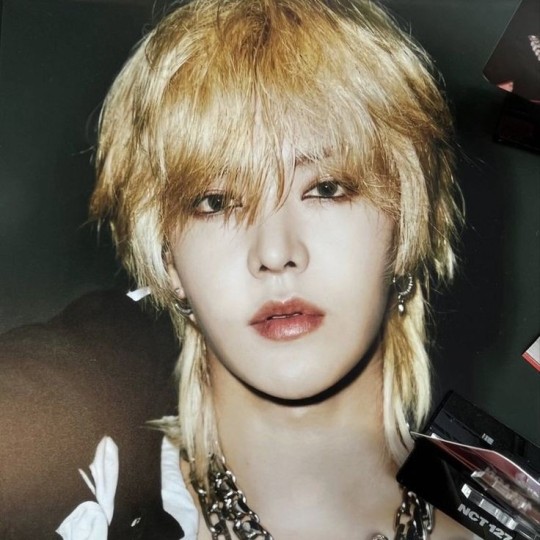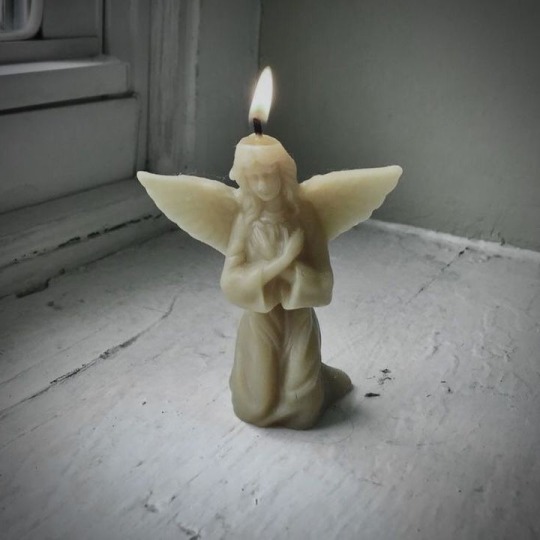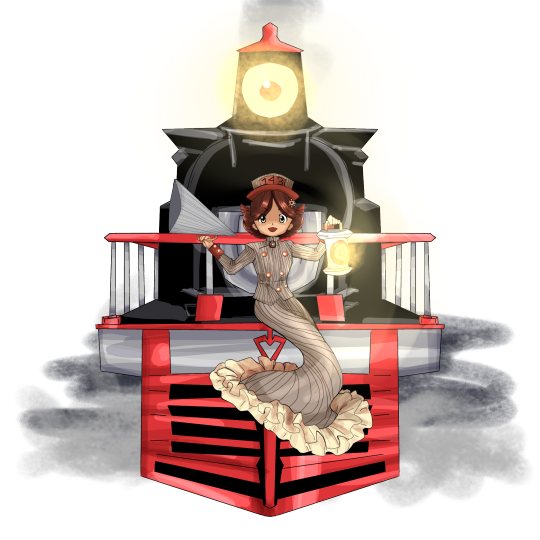#ジレンマ
Explore tagged Tumblr posts
Text
マスコットのジレンマ
マスコット集めがブーム中。
マスコットはふわふわで可愛くて小さめのぬいぐるみなのだが、
私は布や毛の製品について
汚れる、カビる、ダニがつく
と思っている。
そこでどうにか長持ちさせるため
ケースに入れたりする。
けれどそうなると
ふわふわの手触りとはさよならしなければならない。
私が素手で触れば触るほど
マスコットの寿命が縮んでいく。
ふわふわが可愛いから買うのに
ふわふわに触れてはいけない。
マスコットのジレンマがそこにある。
3 notes
·
View notes
Text
自分が、Aという事物人への囚われで苦しんでいる場合、Aの他にBCDという同列の事物群があり、それらをまとめてEと呼ぶ、というようなことを知る(意識する)ことで、A関連の妄想から解放され、その分楽になる。 大人が子供と同じものに縛られなくなるというような場合の基本的なしくみ。
#知ること#抽象#しくみ#解放#解脱#楽になる#祟り#バチ#迷信#煩悩#執着#妄想#悪霊#敵#ケンカ#対立#葛藤#ジレンマ#パラドックス#言語#文化#文明#メタ認知#相対化#測定#実験#観察#科学#成長#教養
0 notes
Text

Gintama OP/ED Song Tournament
"Wadachi" is the ending credits song for Gintama THE FINAL.
"Dilemma" is the 10th opening theme. It is the 2nd opening song for Gintama' (episodes 228-240).
Songs under the cut.
youtube
youtube
0 notes
Text
自己実現のジレンマ:何者にもなりたくないけど、なれないときの対処法
自己実現のためには、何者になりたいのかが明確でない場合、多くの異なる選択肢や可能性に向き合うことが難しくなります。この記事では、自己実現のジレンマに陥ったときの対処法を紹介します。自己実現のジレンマとは、自分自身が何者になりたいのかが明確でないため、多くの異なる選択肢や可能性に向き合うことが難しくなる状況のことを指します。このような状況に陥る理由は、社会や家族、友人、あるいは自分自身が設定した期待や価値観に縛られ、自己実現のために必要な自由や創造性が妨げられることがあります。また、過去の失敗やトラウマ、あるいは未来の不安や恐れによって、自己実現への挑戦をためらうことがあるかもしれません。しかし、自己実現のためには、自分自身を見つめ直し、自分が何を望んでいるのかを確認することが必要です。自分自身と向き合い、自分の強みや弱み、価値観、目標、夢などを明確にしましょう。また、自分にとっての成功や…

View On WordPress
0 notes
Photo

(アイデアの銀河の中で、自分の道を見つけよう。 - Parth Verma 著から)
0 notes
Text




mas por algum motivo, você está
mentindo por dentro



۶❤︎୧ : 私のジレンマ ﹙ 🌸🌬 ﹚



perigosamente, você é linda.
#͏͏͏ ͏͏͏ ͏͏͏ ͏͏͏ ͏͏͏ ͏͏͏ ͏͏͏ ͏͏͏ ͏͏͏ ͏͏͏ ͏͏͏ ͏͏͏ ͏͏͏ ͏͏͏ ͏͏͏ ͏͏͏ ͏͏͏ ͏͏͏ ͏͏͏ ͏͏͏ ͏͏͏ ͏͏͏ ͏͏͏ ͏͏͏ ͏͏͏⠀#simple moodboard#y2k moodboard#random moodboard#yuta moodboard#alternative moodboard#kpop moodboard#nct moodboard#messycore#messy layouts#messy moodboard#aesthetic moodboard#simple locs#edgy moodboard#moodboard
706 notes
·
View notes
Text
Oh, hey. Maybe this is a good time to post the thing I've been trying to write for… more than a year. It keeps getting too long because I'm basically covering the entire manga, so instead I'm just going to hit the biggest points and let you fill in the gaps yourself.
In Volume 1, Natsume meets Tanuma for the first time. Much of the story revolves around Natsume's inability to tell what is ordinary and what is yokai, a problem he refers to twice as his "unstable world." This weakness is a major running theme, and he shares it with all other powerful characters. It is likely one of the main reasons they choose to live in isolation or in the exorcist/magical world. Focusing on this in the story about meeting Tanuma may have originally been meant to highlight his fear that Tanuma wasn't real, but it's the perfect foundation for his long-term arc.
In the author's note for Taki's storehouse arc (Volume 11), Midorikawa-sensei says this:
自分はおかしいのかもしれないと思っていた田沼にとって、不安定だった世界を肯定してくれる夏目の存在は大きな救いになったのに、自分はたいして夏目の力になれないというのはもう田沼が友人として抱えていかなければならないジレンマかなという気がします。 "For Tanuma who thought there might be something wrong with him, the presence of Natsume who affirmed his world that was unstable is a great relief, but Tanuma can’t really support Natsume himself. This is a dilemma I have a feeling he must be facing by now as a friend."
This "world that was unstable" is a clear reference to Natsume's "unstable world," but cannot actually be the same so it must be a parallel. The simplest possible interpretation is that the ideal solution to Tanuma's "dilemma" would be "affirming" Natsume's "world that was unstable." That is, the ideal conclusion to Tanuma's "dilemma" arc would be to somehow help Natsume navigate the boundaries between the yokai and ordinary world. In this same story, Tanuma is able to sense the location of the demon's leg before Natsume can see it.
In Volume 12's Omibashira arc, Tanuma spends most of the story sensing yokai-related things: Sensei not being Natsume, the bottle, the presence of the monkey oni, the separation of the yokai world itself, and Omibashira. Each of these is accompanied by the same "zawa" sound effect that accompanies Natsume encountering strong yokai energy. Tanuma gets hurt because he doesn't trust his senses, and tries to confirm Omibashira visually.
In Volume 16, Tanuma reveals he always knew Ito-san was not what she claimed to be, and that he had come to believe she was "an ayakashi or something like that" once he learned they were real. The same story reveals that Natsume's presence has stabilized Tanuma and allowed him to grow stronger physically and have fewer headaches and illness. In other words, Natsume's power offsets the negative effects of Tanuma's power.
In Volume 22, Tanuma has a vision while Natsume sleeps peacefully, adding another dimension to his sensitivity. Later he tells Natsume the staircase yokai is not the one he dreamed of because its face was different and it didn't feel "malevolent." As is often the case, Tanuma was dismissive of his vision (ability) until Natsume validated him.
Later in the same volume, we finally get the origin story for the Book of Friends. This implies a major turning point in the manga as a whole.
Tenjou-san, in Volume 23, is the story of the four boys and Homura-sempai's investigation of the eponymous possibly-cursed painting. At one point, Tanuma says this:
夏目の世界はあいまいなものがいっぱいなんだな おれは…やっぱり時々夏目と同じ世界を見てみたいなと思うけど 見えるものが違うからこそ確認しあえることもあるのかもしれないなって "Your world is full of uncertain things, huh? I… still feel like I want to see the same world as you, sometimes. But I also think sometimes it's because we see differently that we can confirm things with each other."
The context for this is not the painting, but rather Natsume's fear that Homura-sempai could be a yokai—Natsume's "unstable world." Natsume brings this up again at the end, but Tanuma's role remains unresolved. That's because this dialog was never meant to set up the end of Tenjou-san—it's meant to set up the end of his entire arc. Tanuma couldn't help yet because he doesn't accept that he can "judge the authenticity" of magical objects until By Invitation of the Queen in Volume 29. Realizing he can also sense who is human and who is yokai is yet to come. If he can tell the difference, that means his power offsets the negative effects of Natsume's power.
In Intermission Detectives, Volume 24, only Tanuma is able to ignore the unimportant and notice the significant yet tiny details. Nishimura and Kitamoto are preoccupied with the leading lady and what her beauty implies, while Natsume is too distracted by the possibility of a yokai in disguise to think about anything else, arguably too distracted to enjoy the movie. That means every Tanuma story between Tell Me Your Name and Village of the Sleeping Vessels has had a yokai in disguise—or the possibility of one—as a major plot point.
Village of the Sleeping Vessels introduces Tanuma's "light," an ability he has had few opportunities to use. The same story introduces Ban, a character who can somehow judge the authenticity of magical objects. Ban's name literally means "companion."
This is the beginning of the "female collector" storyline, which also has undertones of "growing up." Hence the combination of Reiko (Natsume's foil must grow up before him), Natsume's interest in magic (to be independent of his mentors/protectors), and Sensei's vulnerability as well as his frequent long excursions (to motivate Natsume's independence or reliability). Tanuma is central because he is meant to be Natsume's life-long partner, without whom Natsume cannot have the life he wants.
In an author's note, Midorikawa-sensei describes Tanuma as "surely able to support Natsume, but unable to come." This is a marked shift from the critical tone of most previous Tanuma notes, a shift which is maintained throughout the "female collector" stories. This is also the same "support" from Tanuma's "dilemma."
Like Intermission Detectives, By Invitation of the Queen (Volume 29) juxtaposes Tanuma's high perceptiveness with Natsume's confusion and fear of yokai in disguise. The same story is Natsume's first physical meeting with the "female collector" Shinobu. It is not a coincidence that she meets him at Tanuma's side, or that Tanuma is the "hero" of the story. His strengths will be relevant to the rest of Shinobu's storyline. Natsume is the one who realizes Tanuma has the power to sense what is real or not, and Tanuma himself is initially skeptical. However, his description of the "occult" fakes as "clean or pure" and Ban's dolls "oozing something sinister" suggests that he is sensing spiritual energy. It is also similar to how he described the yokai in the Volume 22.
Portrait of a Girl implies that Tanuma's power is significant through Matoba and Ban. Matoba's curiosity and the constant threat of meeting Tanuma builds tension, and Ban's shock at Tanuma's ability to see the light in the mirror suggests that they share the same rare ability. The ceiling yokai is able to hide from Ban by hiding from the mirror, implying Ban also shares Tanuma's weak sight. At another point, Natsume overhears an exorcist talking about his ability to use "good tools" even with fading (weak) sight. This isn't about Natsume or the regular exorcists, so it must be about Ban and his dolls, Tanuma, or both.
いつも友人の側に行きたい気持ちを抑えて蚊帳の��で待たなければならない田沼がすでに内側にいる状況 [や、一族の中で生きてきた的場さんの身内の事情や術具についてなど、] 描くことができて嬉しかったです。田沼は実際は出来ることは多いのに本人出来ることなんか大して無いと思ってしまうタイプかもしれないと感じました。 "I was happy drawing things like Tanuma, who has always had to wait outside the mosquito net, repressing the desire to go to his friend's side, but is suddenly on the inside […] I have a feeling Tanuma might be the type who thinks there's not much he can do when in reality he can do many things." (Volume 31) [n.b. the "mosquito net" idiom was used in Nitai-sama when Tanuma described being allowed to help "instead of being outside the mosquito net"]
Matoba is almost suicidally obsessed with "tools," his sister (perhaps spitefully) collects them, and Ban is a scout for magical things, so it makes sense during this storyline to focus on Tanuma's own ability to scout. However, there's little to no set-up for this ability in the manga. Even Tenjou-san, which was the perfect opportunity to hint at his ability with the painting, hinted at identifying yokai instead. The coexistence of the "pure" painting with the "pure" humans is not coincidental, but a retroactive hint to future readers that the ability to recognize what is "real" is the same whether the the "real" applies to an object or person.
So while Tanuma's ability to scout "powerful" tools may be important in the short term, it's a mere step toward his true power. The ultimate goal is to reveal that Tanuma's sensitivity to spiritual energy extends to yokai as well, and that he can tell Natsume what is yokai and what is not and even, it seems, what is malevolent and what is not. Through this, he would become irreplaceable, the only person Natsume can trust to give him peace, to affirm his unstable world, and to allow him to be as indifferent to random yokai as Shinobu.
The only thing that works against this is the inconsistency with which Tanuma appears to notice yokai. But this has been addressed through his "ability to judge authenticity." When Natsume first points out that Tanuma knew the box wasn't real, Tanuma initially dismisses his feelings as a "hunch," before going on to talk about how he never had a chance to be exposed to fakes before. He then admits that the "occult" collection felt "clean or pure," but he only noticed because he had Ban's dolls as comparison just before.
Natsume himself describes Tanuma to Natori as "cautious" and "deep thinking." In other words, he is the opposite of impulsive, only acting when he has gathered enough evidence to make a case. Tanuma would have felt things many times without reacting until he had more to go on. Fun fact: when Natsume first brings up Tanuma's power, he actually starts by talking about how he was "spinning in circles" "confusing [human matters] for ayakashi matters" unlike Tanuma who "sees people clearly." Midorikawa-sensei is a troll.
Tenjou-san (yes, again) addresses this gap from a different angle. When Natsume considers telling Nishimura and Kitamoto the truth, Tanuma suggests Natsume still needs the "space to be treated normally" "unlike me, who always worries and asks if there's something there." In other words, Tanuma feels bad about talking about yokai unnecessarily, which means he's not going to mention a feeling he doesn't think is important. This likely goes back to Volume 5, when Natsume admitted to lying about yokai and wanting to keep things "normal" between them. (The original Japanese is an incomplete sentence, but this is what he seemed to be getting at.) This is why, for example, Tanuma says he "didn't want to bother" Natsume when he wasn't sure he was possessed in Volume 8. He's not just unsure of himself—he's actively avoiding potential validation to give Natsume space. This is also probably why he gets more… excitable recently—the more Natsume talks about yokai, the less Tanuma feels the need to hide his interest.
All of this only addresses Tanuma's power and how it solves his dilemma. It is heavily implied that Tanuma's dilemma is at the heart of his sense of inadequacy and, in turn, his "characteristic sense of distance" from Natsume. This suggests that the reveal of the true extent of his power could lead to him being more open and finally closing that gap. But I'm not quite sure of this. Despite Tanuma's feeling of a "wall" between him and Natsume and being "unable to keep up," they're much closer than they used to be. This could mean that it's their closeness that will lead to revealing his power, thereby centering Natsume's emotional development rather than Tanuma's insecurity. And that matters because their emotional bond is at least as important as what their powers mean to each other.
While the hints at Tanuma's power have been comparatively subtle, his emotional support has not. Throughout the manga, Tanuma has helped guide Natsume through his anxiety and emotional trauma. He listens to him talk about his grandmother being an unwed mother with powers like him, confronts him over hiding his true needs, and sees through his lies or silence when others can't. In Volume 13, Tanuma's role in Kitamoto's story implies that he grounds Natsume and allows him to accept attachments to the town and the Fujiwaras. In the Volume 26 notes, Midorikawa even says that Natsume is able to deal with "sorting out his feelings" by spending time with Tanuma without even talking. This emotional connection is particularly evident with the Fujiwaras, whom Tanuma is invested in because of their importance to Natsume. In Volume 20, for example, his conversation with Natsume about the Fujiwaras is clearly framed as something between the two of them, that Taki can only observe.
This Fujiwara theme makes its appearance in Portrait of a Girl when Tanuma gets invested in Morio's relationship with his adoptive parents. These characters are an obvious mirror for Natsume and the Fujiiwaras. At the end of the story, it is also Tanuma who resolves Natsume's feelings of anxiety about why Morio sold off all of his parents' belongings. I had previously thought of Tanuma's emotional support as a kind of parallel to his power, but the mingling of the above with Tanuma's increasing involvement with the exorcist/magic world changed my mind.
Tanuma's emotional support relies on his empathy, understanding of people, and ability to see what others don't. It's not one single thing. When Natsume talks about Tanuma's ability to "see people" he also brings up his "night vision" which is a completely separate ability from all of the above. There is overlap in the abilities he uses to help Natsume with the ordinary world (e.g. Fujiwaras) and the abilities he uses to understand what is yokai and what is ordinary. This is why By Invitation of the Queen is simultaneously about Tanuma's ability to see through people and his ability to sense the "purity" of the box. Tanuma's extraordinary perceptiveness is an entire collection of talents, all of which he can use to see what Natsume can't, to give Natsume inner peace, to allow him to live in the moment instead of constantly looking over his shoulder. But only if he's there—just as Natsume can only offset Tanuma's sensitivity if he's present.
If Natsume is allowed to support Tanuma in the same (or similar) ways, and if Tanuma realizes how powerful he truly is and Natsume allows him to help, then their relationship will be truly balanced. They will be able to support each other in all ways, in all worlds, without worrying about being too much or too little.
This is what makes Tanuma the Sasame to Natsume's Misuzu—without whom Natsume cannot be "fulfilled" even when "surrounded by liveliness." It's what makes him the light in the dark forest, Natsume's guide through the fog that all with sight suffer. Tanuma may need Natsume to live, but Natsume needs Tanuma to live.
#natsume yuujinchou#natsume's book of friends#tanuma kaname#tanatsu#I left out a lot#pretend you believe me and reread the manga#it's fun
76 notes
·
View notes
Photo

Xユーザーの鹿の王さん:「相席食堂に出られてた風呂桶職人の方が「上手くいったなっていう桶一個もねぇもんな どっか申し訳ねぇもんな それを黙って売っちまうの」というお言葉、老若男女全ての物を作る人のジレンマだなって思うの。」
71 notes
·
View notes
Text

Chugga chugga on the phantom train!
I’ve written a bunch for her under the cut
Came up with some stuff for her:
- Unnamed, just the conductor or engine 143. In life, was killed in a train crash.
- Species: Train Phantom (I imagine she is both the apparition and the train. Maybe like a centaur.
- Ability: ability to conduct to phantom railway
- Theme: 恩知らずな生き物の刈り取り~Engine 143 (reaping the ungrateful living ~engine 143)
Spell card names:
- All aboard!!
- に帰る きさらぎ駅 (return to Kisaragi Station)
- トロッコのジレンマ (the trolley dilemma)
- L&Nはどこへ行ったのだろう? (where has the L&N gone?)
Inspired by the Folksong “Engine 143”
Basically, a train conductor got in a crash in the 1800s, which left him mangled but still alive if only for a moment. He’s inseparable from the train, like litterally. The engine is destroyed as well, and they both spiritually become one— The conductor
It’s kinda like Youmus two bodies, but they share a conscious mind and cannot be apart. The conductor will arrive at abandoned or empty stations at random times, boarding whoever gets on— live or dead, and takes them pretty much anywhere— including other worlds. She has little regard for living people and will straight turn a cow into fine paste
Other stuff:
- Train does need rails it just goes wherever. Engine is modeled after a 1858 Boston model.
- Conductor talks fast and almost gibberish at times. Seems to speak every language but doesn’t really know them, and at times will throw words in order with no meaning
- eye that’s the trains light moves with the conductors eyes
- will straight run people over
- sort of the result of a man dying for the engine he loved, after being mangled and crushed they became one in death, inseparable.
32 notes
·
View notes
Text


#おでかけ #入笠山
寄り道を終えて、メインの入笠山登山へ。
入笠すずらん山野草公園からしばらく山道を歩いていくと、まず辿り着くのは入笠湿原です。


湿原といってもわりと乾いた印象。こんな風に木道がずっと続いています。林の中から急に開けたところに出るので開放感がすごい。
6月だとこの斜面は日本すずらんが満開になるそうなんですが、まだ花はほとんど咲いていませんでした。見てみたいけど、ベストシーズンだと混むだろうし、というジレンマです。

アマドコロを発見。ヤマイモに似た根っこが少し甘いところからアマドコロなんだそうです。でも果実は有毒。

木道を上の方まで登ってみて、湿原を俯瞰する。春の山の風景。
15 notes
·
View notes
Quote
ChatGPTに「トロッコ問題のトロッコは絶対に止まらないの?」 と聞いたら「止まりません」と帰ってきたので、 「では5人を轢いて時間稼ぎしてトロッコの無限の推進力で永久機関を作り数億人の貧困問題を解決する」 と回答したら、 「それも結局は功利主義のジレンマじゃない?」と指摘された
Xユーザーのエヌユルさん
19 notes
·
View notes
Quote
マスクが「言論の自由絶対主義者」を自称するのは、自由を至高のものとするリバタリアン(自由原理主義者)として当然です。もともと旧Twitterのコンテンツ・モデレーション(投稿監視)に懐疑的で、2022年10月の買収後に第三者委員会を立ち上げ、独立系ジャーナリストのマット・タイービらを中心に実態を調べさせました。 その調査で明らかになったのは、実際に、保守派のツイートを非表示にしたり、アカウントを強制的に削除していたりしたことでした。ただしこれは、保守派のいうような「ディープステートの陰謀」ではなく、サンフランシスコを発祥の地とする旧Twitterにはもともとリベラルな政治信条を持つ社員が多く、モデレーターの一存でコンテンツやアカウントの削除を決めていたからのようです。 マスクはこうした調査を受けて、モデレーターたちの解雇に踏み切ります。経営者の立場からしても、コンテンツ・モデレーションは費用対効果が悪すぎるということだったのでしょう。
ト��ンプとマスクが掲げる「言論の自由」にも一理ある、SNSが抱えるジレンマに民主主義社会はどう向き合うか 作家・橘玲氏が読み解く米大統領選(2)(1/4) | JBpress (ジェイビープレス)
4 notes
·
View notes
Text
利己主義のジレンマ 自分だけの利益にしようと思ってやった言動が、意図しないかたちで他人のためにもなってしまうということ
0 notes
Text

Gintama OP/ED Song Tournament
"Kaatoniago" is the 4th opening theme song for the rerun series Yorinuki Gintama-san (episodes 40-51).
"Dilemma" is the 10th opening theme. It is the 2nd opening song for Gintama' (episodes 228-240).
youtube
youtube
1 note
·
View note
Quote
囚人のジレンマは、ゲーム理論の分野におけるもう 1 つの典型的な例であり、2 人の合理的な個人が、協力することが彼らにとって最善の利益であるように見えても、協力しない理由を示しています。このジレンマは、逮捕され、別々の部屋で尋問されているアリスとボブという 2 人の犯罪者に関する物語として表現されています。 セットアップは次のとおりです。 1.犯罪: アリスとボブは共犯者であり、共謀して犯した罪で逮捕されました。警察は主な罪で彼らを有罪にするには十分な証拠を持っていませんが、より軽い罪で両者を有罪にするには十分な証拠を持っています。 2.尋問: 警察はアリスとボブを隔離し、それぞれに同じ取引を持ちかける: 片方が他方に不利な証言をし (裏切り)、もう片方が黙秘を続ける (協力する) 場合、裏切り者は釈放され、協力者は重い刑 (たとえば10年) を受ける。両者とも黙秘を続ける場合、軽い罪で有罪となり、中程度の刑 (たとえば2年ずつ) を受ける。両者が裏切る場合、両者とも重い刑 (たとえば5年ずつ)を受ける。 3.ジレンマ: ジレンマは、それぞれの囚人に 2 つの選択肢があり、相手の決定を知らずに自信を持ってどちらを選ぶこともできないために生じます。両者にとって最適な結果は、協力して沈黙を守ることであり、その結果、2 人の懲役刑は合計4年になります。しかし、相手が裏切り、重い刑罰を負わされるかもしれないという恐れから、2 人とも裏切ることが多く、結果として 2 人の懲役刑は合計 10 年になります。ゲーム理論では、「裏切る」戦略が他の戦略よりも優れていると言われています。 このシナリオは、個人が互いに協力することを信頼できない場合、最良の結果を達成することが難しいことを示しています。囚人のジレンマは、犯罪捜査だけでなく、経済、政治、生物学など、さまざまな分野や状況に適用され、各参加者の結果が他の参加者の行動に依存する競争環境における行動を説明しています。
ゲーム理論を簡単に。皆さんの多くは、ゲーム理論について聞いたことがあると思います… | Igor Novikov | 2024 年 11 月 | AI に向けて
3 notes
·
View notes